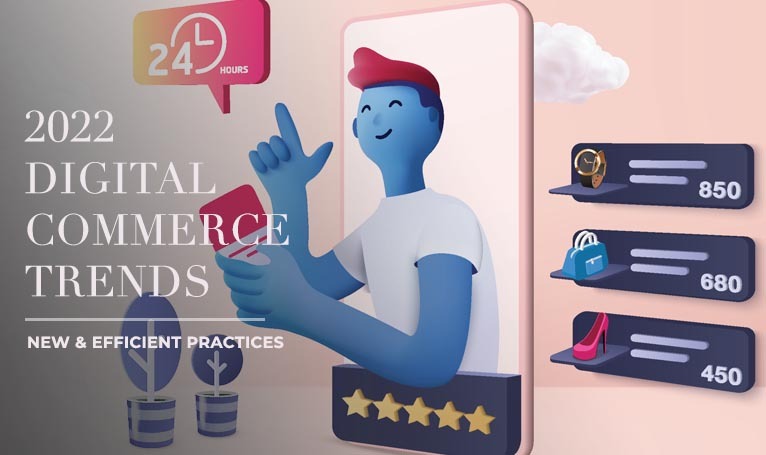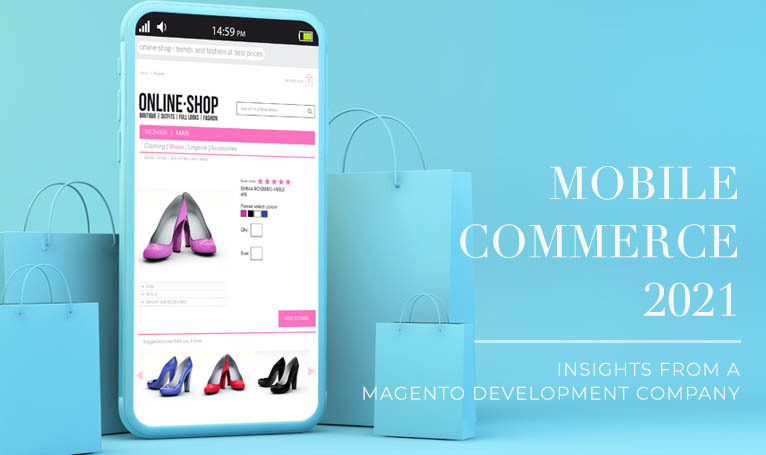
Progressive Web Apps- A Faster and Modern Approach for Mobile Application Development
Business leaders have to think towards deliver top-shelf shopping experiences to their owned sites and apps as well as all the channels and ways in which consumers interact with them. As without this, it would be difficult to achieve business profitability, sustainable growth and higher ROI. Progressive web apps are helping business particularly ecommerce turn their website into mobile applications that are robust, secure and highly available. They particularly take advantage of the much larger web ecosystem, plugins and community and the relative ease of deploying and maintaining a website when compared to a native application in the respective app stores. Thus progressive web apps in way have some added functionality and flexibility over native application. By now we presume that you already started thinking about Progressive Web APPs for you next mobile application. Talk to our experts and start developing a secure, robust, highly available and cost effective mobile applications. There are many other added benefits of using progressive web apps (PWA) in your mobile application. The foremost is you don’t have to develop your mobile application twice. Unlike native apps- a PWA built is compatible on both android and IOS. That’s not all.
PWA are also-
- Progressive
- Discoverable
- Expandable
- Responsive
- Connectivity independent
- App-like
- Less Storage
- Interactive
- Secure
Interesting isn’t it.
Owing to this, more companies are opting to develop PWAs due to their efficiency and superior user experience. Some of the popular PWAs available are listed below.
- Fobes
- Ola
- Flipkart Lite
- BookMyShow
- OLX
- Trivago
Quit a big name, isn’t it. In coming days, we should see more companies jumping on the bandwagon to explore opportunities with PWAs in terms of user experience and retention. Allure Ecommerce has helped several business develop exclusive PWA for their business. Need help in your PWA initiatives, we are there to help you. Considering progressive application for your business ensure that your website passes minimal requirements. Any business can opt for PWA and upgrade to a perfect mobile experience. There is nothing much technical details required by a brand to opt for PWA. Some of them are-
- HTTPS
- Web Manifest
- Service Worker with Offline Caching
Any site that is not using HTTPS is pretty much dead these days. You can upgrade your HTTP site to HTTPS by getting a SSL certification for your site. The HTTP help domain with an encryption layer around data sent between the browser and the server. Thus making you website reliable and secure. The web manifest is not a technical requirement but it helps you get a desired aesthetic to your mobile application. It is simply a JSON file the browser loads in the background.
It contains meta data about your site the browser and platform use to drive the add to home screen experience. Here you can define the default start URL, color scheme, how your application launches, and the icons used to represent your app on the home screen. And the third and final technical requirement for PWA is having a registered service worker with a fetch event handler. This is mainly because chrome particularly check for at least a fetch event handler before it would trigger the add to home screen work flow. The fetch event handler thus help a user to stay connect to the server even if they are working offline. This is quite an awesome feature which the most native applications don’t possess. One has to understand that able to work offline doesn’t mean your user can function offline but they can fetch event handler and some assets cached locally. Nevertheless, a business leader should understand that you mobile application could still break. One need to have a skilled service worker developer in order to help you create your Progressive Web App.
Allure Ecommerce has helped several business make a robust and seamless progressive web apps for their business. Talk to our experts to discuss your business requirements. PWA can be leveraged in either ways. Building a PWA with a front-end as a service help leaders offer a striking experience to the users. Thus helping business invest their time towards customer journey. In addition to this, business can save alot of efforts towards ongoing maintenance, evolution, and integration efforts don’t eat away at time that could be spent innovating your customer experience. Even if your ultimate goal is an API-led experience, you don’t need to start there. also you begin this journey really depends on your current architecture. Start with a PWA on mobile to quickly get a faster, revenue-generating experience up on your highest traffic channel. Then you can take a phased approach to extend your PWA across all screens and get the additional benefits of an API-led experience.
How Progressive Web App help Businesses with Marketing Efforts?
As per a survey, an app loses 20% of its users for every step between the user’s first contact with the app to the time they start using the APP. This is an alarming factors for mobile application developers to fine tune their customer journey. A user must first find the app in an app store, download it, install it and then, finally, open it. On the other hand, progressive web app eliminated these step and allows user to immediately use them. And when the user returns to the app, they will be prompted to install the app and upgrade to a full-screen experience. Progressive web application takes advantage of a mobile app’s characteristics, resulting in improved user retention and performance, without the complications involved in maintaining a mobile application.
Conclusions-
Progressive web apps are capable of offering state of art web experiences. Not just aesthetics and engaging UI, they offer many added advantages to businesses to engage with customers as compared to the native apps. PWAs can work offline, should load instantly and provide new channels to re-
engage visitors to build brand relationships. Developers like them because they are easy to develop and give them a new playground with the features service workers offer.
For both developers and business stakeholders Progressive Web Apps are the clear winner is customer engagement applications.







